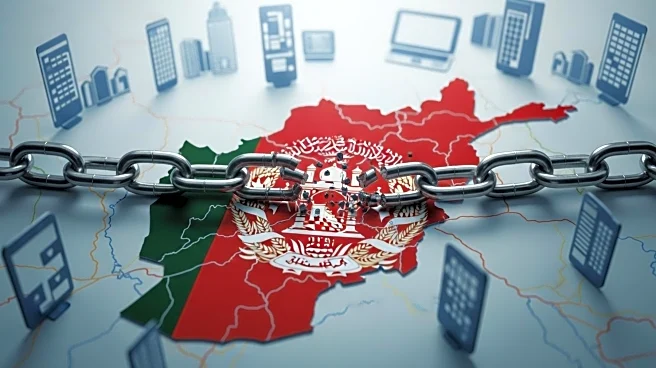What is the story about?
What's Happening?
The Taliban has initiated a ban on fixed internet access in Afghanistan, starting with the northern Balkh province. This move is part of a broader plan to extend the ban nationwide, affecting consumers, government offices, private sectors, and public institutions. The ban is reportedly aimed at preventing immoral activities, according to an official statement. The Afghanistan Media Support Organisation has condemned the ban, highlighting its impact on freedom of expression and access to information. Mobile internet remains available but is slow and costly.
Why It's Important?
The internet ban in Afghanistan has significant implications for the country's economy and society. It disrupts business operations, education, and access to information, potentially stifling economic growth and development. The ban also poses challenges to media freedom and the ability of citizens to communicate and access essential services. The move reflects the Taliban's ongoing efforts to control information and maintain strict societal norms, impacting millions of Afghan citizens.
What's Next?
The Taliban's internet ban is expected to expand nationwide, affecting more provinces. Stakeholders, including international organizations and human rights groups, may respond with condemnation and calls for the restoration of internet access. The Afghan government may seek alternative solutions to provide essential services without internet connectivity, though details remain unclear.
Beyond the Headlines
The internet ban raises ethical concerns about censorship and the suppression of free speech. It may lead to increased isolation of Afghanistan from the global community, affecting international relations and aid efforts. The ban could also exacerbate existing social and economic challenges, further destabilizing the region.















